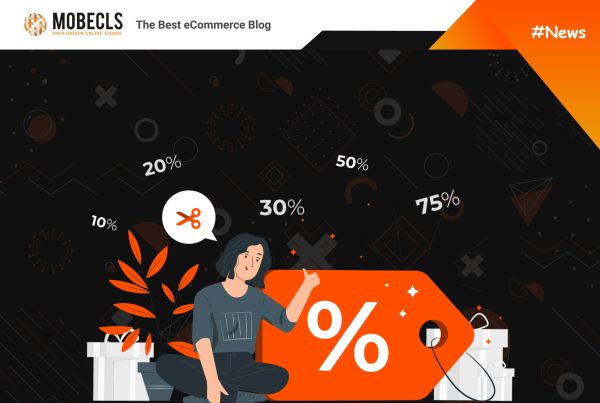Artificial Intelligence became the main trend of the last years. In 2019 it’s riding the hype wave. Robots are making up legal claims, writing sports reports and criminal chronicles, working as consultants in sales departments and on websites. Marketers also use Artificial Intelligence as it helps to:
- Bring sales forecasts to the next accuracy level;
- Learn more about customers;
- Optimize digital advertising campaigns;
- Create detailed buyer personas;
- Join in real-time conversations with consumers.
Numerous businesses are already using AI marketing solutions systems in a wide range of industries. These solutions can track the relationships between a large number of objects, find patterns, and make predictions based on these patterns.
AI Makes Marketing More Customer-Oriented
For a long time marketing was built around products. Even when marketers began to talk about customer-centricity, it was was still a product story: How to make a product more satisfying, more suitable for customers.
As a result, the principal sales strategy was to convince consumers that they need a certain product. They didn’t care if a product was trash or just useless.
Fortunately, marketing starts changing. AI technologies in marketing allow collecting a large amount of clients’ data. If marketing specialists process it correctly, they will be able to predict what configuration of the product or service will suit a particular client. A person isn’t able to process so much data, but it can be done by artificial intelligence. It can take on many of time-consuming chores marketers face every day.
Artificial Intelligence Marketing is a method of using buyers’ data and AI to create a marketing strategy. With the help of machine learning, marketers can predict the next client’s step and develop a solid customer journey map for better sales.
Marketing is changing. It combines AI and traditional marketing techniques. It becomes more client-oriented, and artificial intelligence platforms play a fundamental role in this process:
- Big Data;
- Mechanical Engineering;
- Powerful Solutions;
- Smart Search;
- Smarter Announcements;
- Delivery of Refined Content;
- Relying on Bots;
- Ongoing Training.
AI Automates Marketing Processes
Emarsys AI marketing solution allows you to understand each client as an individual and conduct large-scale campaigns tailored to their characteristics. Business strategy and advertising campaign development is unambiguously human competence. AI won’t do it for you. Nevertheless, each decision is based on data. We can develop a solid strategy only basing on what is going on, what the trends are, and what they will lead to short. Data analysis is the AI’s domain and its main function. Artificial intelligence can’t make a strategic decision, but it can dramatically improve the quality of the decisions made by people.
The Intuition Problem In AI Marketing
Intuition is considered to be the main advantage of all human beings. People say that robots operate within the limits of rigid logic, and a person can feel the illogical, seemingly, connections. AI indeed has no intuition in human understanding. Nevertheless, its ability to process data from many sources gives the possibility of more accurate planning than intuitive forecasts.
AI Uses Natural Language
Science-fiction is full of various robots that can communicate like a person. Most of us think that this is pure artistic fiction, and to control AI systems we need specially trained operators who work with specific codes, and so on. In general, the introduction of such a system requires the hiring of top-notch employees and big investments.
However, things are different. The distinctive feature of marketing AI is its ability to understand natural language. Of course, the system can’t support a long conversation, but it can quickly and accurately find answers to questions on the professional sphere under which it was configured.
The same applies to business planning issues. AI can act as a business advisor. It analyzes data and looks for certain answers, communicates in a natural language.
Cognitive AI Marketing
Today the situation is paradoxical: clients have high demands, but the market doesn’t have time to respond to these requests. Marketers have drowned in the data ocean but at the same time, they lack useful information.
Most of the data that reveals relevant customer information is unstructured. It can’t be processed mechanically. So it remains unexamined in most companies.
Using AI tools, you can analyze all types of data and integrate analytics into daily marketing processes to make your strategy more targeted and relevant.
A cognitive approach implies that data serve marketing, not vice versa.
The cognitive approach to business assumes that the collected data becomes the basis for strategic solutions. It provides more reasonable, contextual recommendations to form a consumer experience and adjust it down to the smallest detail. It increases brand value, strengthens customer relationships, and accelerates the pace of strategic development.
The cognitive approach allows:
- Identify unmet customer needs to upgrade products/services;
- Attract more customers and increase profits through individually tailored products, services, offers & pricing;
- To get the maximum return on cooperation with existing clients and partners by optimizing investments in strengthening business relationships.
AI leaves no room for old marketing decisions.




